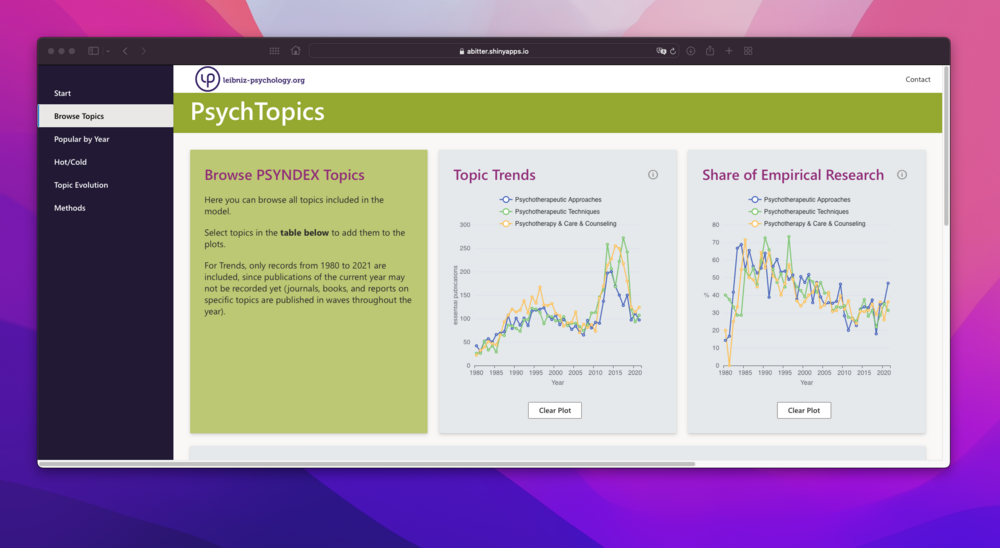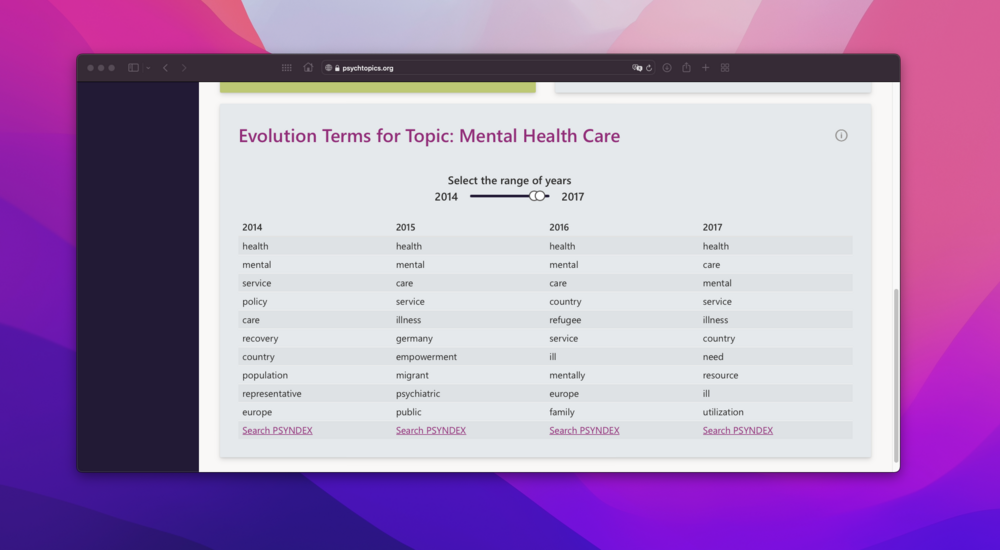PsychTopics, the ZPID tool for exploring and analyzing research trends in psychology, has a fresh new interface and now features topic evolution.
In times of ever growing amounts of scientific publications, it can be hard to keep track of research trends. PsychTopics aims to assist researchers, students, policy-makers, and journalists by automatically identifying topics in psychological research literature: A text mining algorithm analyzes titles and abstracts to find the underlying themes. In addition to popular topics in specific years, “hot” and “cold” topics are presented.
In the new update of PsychTopics, the recent RollingLDA (Rieger et al., 2021) is implemented. This topic modeling method is specifically designed for “living” text collections: New publications are incorporated into the model with the possibility of topic contents to change over time. By doing so, the “evolution” of topics over the course of years can be investigated. For instance, the most characteristic words of the topic “Mental Health Services” reveal that respective research became concerned with refugees after 2015.
“The new user interface makes the app easy and fun to use”, says André Bittermann, product owner and acting head of ZPID’s Big Data research unit. “The topic evolution offers new insights into the psychological research landscape. To include this new feature, we worked closely with Jonas Rieger from TU Dortmund, the developer of RollingLDA.”
It is important to note that PsychTopics identifies topics automatically using machine learning. Therefore, it makes no claim to completeness and it should be used for exploratory purposes only. While the topics found by the algorithm indicate research areas of particular publication volumes, very novel topics might still not be detected. “We recommend using PsychTopics as a complementing tool to scientific communication on Twitter or conferences”, says Bittermann.
Currently, PsychTopics uses data from ZPID’s PSYNDEX, the literature database of psychology publications from the German-speaking countries. In a proof-of-concept study, our Big Data research team was able to show that Twitter can be used to detect research trends even earlier than an analysis of publication data alone (Bittermann et al., 2021). “Including publicly available Tweets of the international psychological research community will be the next step in the PsychTopics development. But for now, we are excited about feedback from our users”, says Bittermann.
More information about the development of PsychTopics and methodological details are reported by Bittermann & Rieger (2022). A live demonstration of PsychTopics will be given on November 2nd as part of the “Practices and Tools of Open Science” lecture series.
Launch the app:
www.psychtopics.org
More information:
https://psyndex.de/en/trends/psychtopics
Source code:
https://github.com/leibniz-psychology/psychtopics
Lectures “Practices and Tools of open Science”:
https://leibniz-psychology.org/en/opensciencelectures




